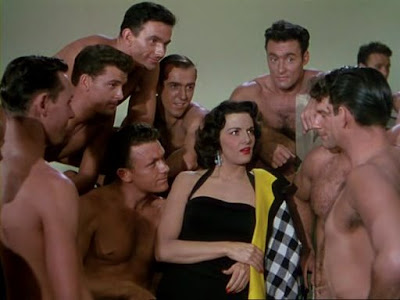
Director: Philippe Claudel
Cast: Kristin Scott Thomas, Elsa Zylberstein
Serge Hazanavicius, Jean-Claud Arnaud, Laurent Grévill, Frédéric Pierrot
Have you noticed how characters in French movies wear the same clothes over and over? How their homes aren't afraid of looking dusty and unkempt? How the actors, despite the fact that you know their faces, seem to completely vanish into the characters they're playing?
This lived-in-ness may not be true of all their national cinema, but in Philippe Claudel's exquisite directing debut it seems to be the rule.
An intimate tale of the fragile links between people, the film begins when Juliette Fontaine (Scott Thomas) is released from prison after a fifteen year sentence.
She sits alone having a cigarette at the airport gazing ahead into some sort of limbo with a blank expression on her face; her sister Léa (Zylberstein), as energetic and smiley as her sister is sad, arrives to pick her up and after an awkward hug they leave.
We learn that Juliette was practically forgotten about while she was in jail, the reason of her sentence remaining a complete mystery for Léa (their parents began saying they had only one daughter) and the crime itself a continuing burden for Juliette.
Now she is forced to live with her sister, her husband Luc (Hazanavicius), his mute father Paul (Arnaud) and their two adopted Vietnamese girls (Lily-Rose and Lise Ségur).
She has to look for a job, knowing that most companies won't take her because of her criminal past, meet with her parole officer Captain Fauré (Pierrot) and try to readjust to a society and a life she really has no desire of being part of.
The film mostly works around the devastating, beautiful performance by Scott Thomas who in French seems to tap into the greatest source of her acting range.
Her aristocratic features and British accent have always made her a perfect actress for roles that demand an air of superiority (her character in "The English Patient" for example has her working the Garbo in her to the maximum level).
Here the actress becomes someone else entirely, her face becomes a blank slate. Her sunken cheekbones and detached manner only hint at the kind of life she led in jail, her wrinkles become the actress' weapon and the character's punishment.
You sometimes wonder why Juliette didn't try suicide as an option if she seems to have lost her will to live, Scott Thomas makes her such a complex woman that soon you realize that she has chosen to live her life as a continuation of her prison sentence.
She holds regret, resentment and anger, but at the same time allows herself to believe she may have some hope. Her interaction with Pierrot is a thing of beauty (and one of the elements that make the film delicious despite the heaviness of the emotional weight) and as she slowly learns to love her nieces (Ségur particularly is a delight to watch) she becomes luminous.
She is at her best when she seems to not be acting at all, watching her dress up for a bar says more about Juliette than a whole speech and in one of the film's most beautiful moments she quietly enters Grandpa Paul's study and falls asleep next to him while he reads.
Zylberstein is perfect in her own way, her character gets the difficult task of balancing fear and unconditional love. You wonder why does she feel an obligation towards someone everyone else disdains.
The actress however turns this in her favor and lets it become Léa's ground, her insecurity and lack of trust towards her sister make you wonder if she in a way is guilty of some sort of emotional crime as well.
A born storyteller, with background as novelist and screenwriter, Claudel crafts an intimate universe in what results a compelling portrait of desolation and the kind of pain that changes you forever. The film relies on silences and small moments, perhaps more than it does on dialogue, which is why it's remarkable how you can perceive how well written it is.
Claudel's choices as a director are just as fascinating; he could've easily made his film a mystery by making us wonder what exactly did Juliette do to end in jail, instead he creates a series of vignettes where we see her slowly becoming alive again.
Moving at an easy, but never dull, pace, Claudel takes his time taking us places and before you realize it you might have even forgotten that there is some sort of mystery to begin with; the film doesn't seem to need a normal catharsis, it reaches one without us even noticing.
He concentrates on Juliette, sometimes the camera moves with her and views the world through her eyes as if they were watching things for the very first time, or at least under a different light.
The central themes sometimes become too obvious (a scene where Léa discusses "Crime and Punishment") and the film doesn't work well when it feels as if it's forcing itself upon us.
It's too bad considering that Scott Thomas' work is enough to guarantee that we will ask ourselves Dostoyevskian questions on our own.
By film's end we may come out wondering if it's OK to like a criminal, if the nature of the crime should make a difference to how we view them and mostly if it's possible to regain one's humanity.
What Juliette did should've remained a secret, because in the end it doesn't make much of a difference; the pain in Scott Thomas' face doesn't come close to being justified by the eventual revelation.






























